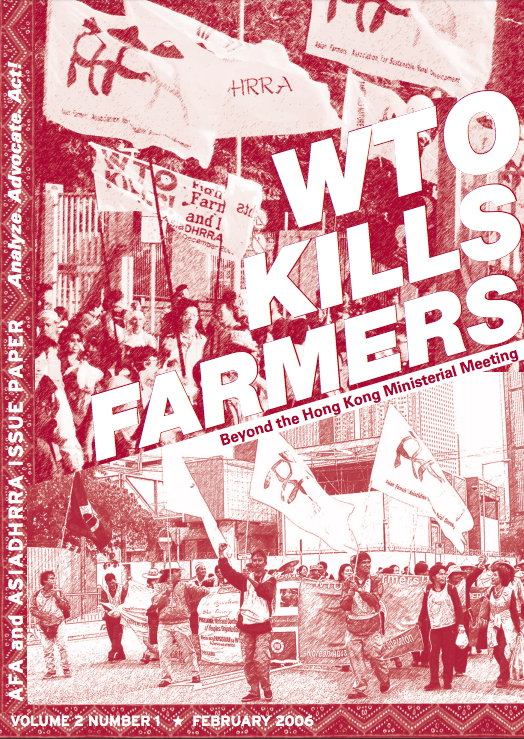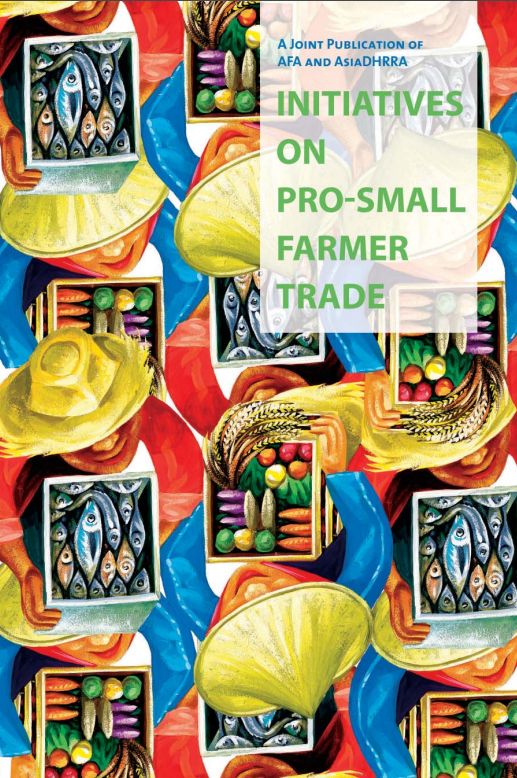Location
AsiaDHRRA traces its earliest roots to the 1974 Development of Human Resources in Rural Asia Workshop (DHRRAW) held in Thailand. It is a regional partnership of eleven (11) social development networks and organizations in eleven (11) Asian nations that envisions Asian rural communities that are just, free, prosperous, living in peace and working in solidarity towards self-reliance. To achieve this, the network’s mission is to be an effective
- Promoter and catalyst of partnership relations, creating opportunities for genuine people-to-people dialogue and exchange;
- Facilitator of human resource development processes in the rural areas; and
- Mobilizer of expertise & opportunities for the strengthening of solidarity and kinship among Asian rural communities.
Members:
Resources
Displaying 1 - 5 of 13SP/SSM
A Special Product (SP) is an agricultural product “out of the WTO” in that they are not subject to tariff reductions, i. e. Countries can keep the right to maintain protective tariffs on certain agricultural products that are essential for food security, rural development, and farmers’ livelihoods. The G33 proposal is for 10% of developing country products to be exempt from tariff reductions, with an additional 10% of product lines to have limited tariff reductions. This would be somewhere in the range of 300 products. The US counter-proposal is for a mere 5 products!
WTO Kills Farmers: Beyond the Hong Kong Ministerial
The World Trade Organization (WTO) hailed the recent Hong Kong Sixth Ministerial Meeting last December 2005 as a positive movement towards the conclusion of the Doha Development Round. The round was supposedly geared towards ensuring that trade contributes to the development objectives of least developed and developing countries.
WTO Kills Farmers: Beyond the Hong Kong Ministerial
The World Trade Organization (WTO) hailed the recent Hong Kong Sixth Ministerial Meeting last December 2005 as a positive movement towards the conclusion of the Doha Development Round. The round was supposedly geared towards ensuring that trade contributes to the development objectives of least developed and developing countries.
WTO Kills Farmers: Beyond the Hong Kong Ministerial
The World Trade Organization (WTO) hailed the recent Hong Kong Sixth Ministerial Meeting last December 2005 as a positive movement towards the conclusion of the Doha Development Round. The round was supposedly geared towards ensuring that trade contributes to the development objectives of least developed and developing countries.
Initiatives On Pro-Small Farmer Trade
Contents:
- The Seikatsu Club Consumers Cooperative: A Unique Producer-Consumer Relationship in Japan
- PDAP’s Push for Organic Rice: Enhancing the Survival of Filipino Rice Farmers in a Liberalized Economic
- Setting Green Net: A Trailblazer in Organic Marketing in Southeast Asia
- The Fair Trade System: Focus on the Oxfam-GB Model
- Emergency or Expediency?: A Study of Emergency Rice Reserve Schemes in Asia




